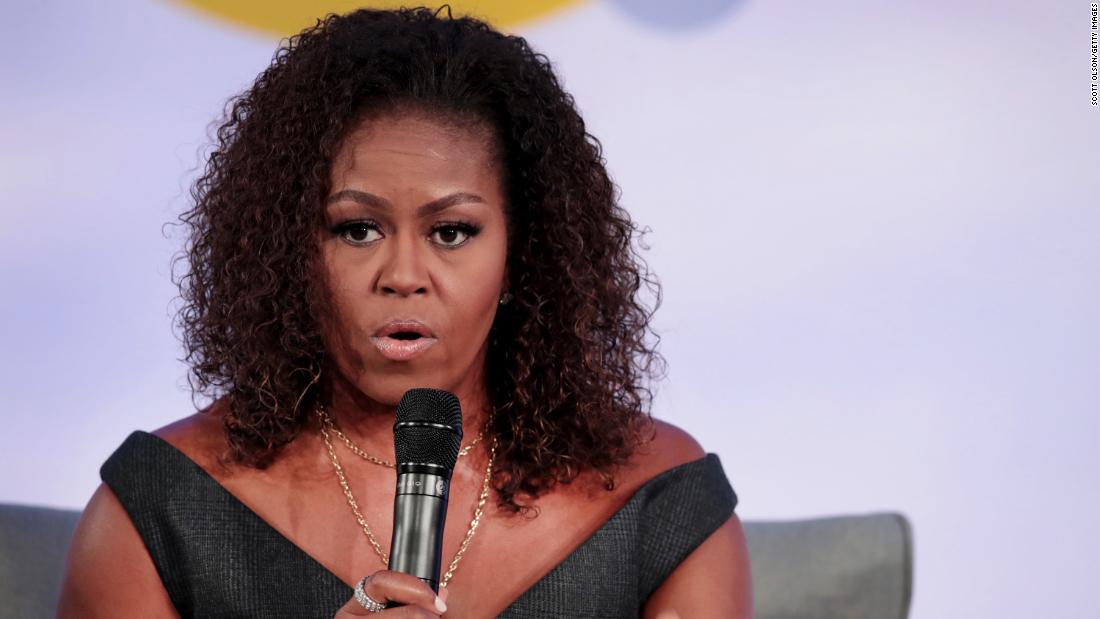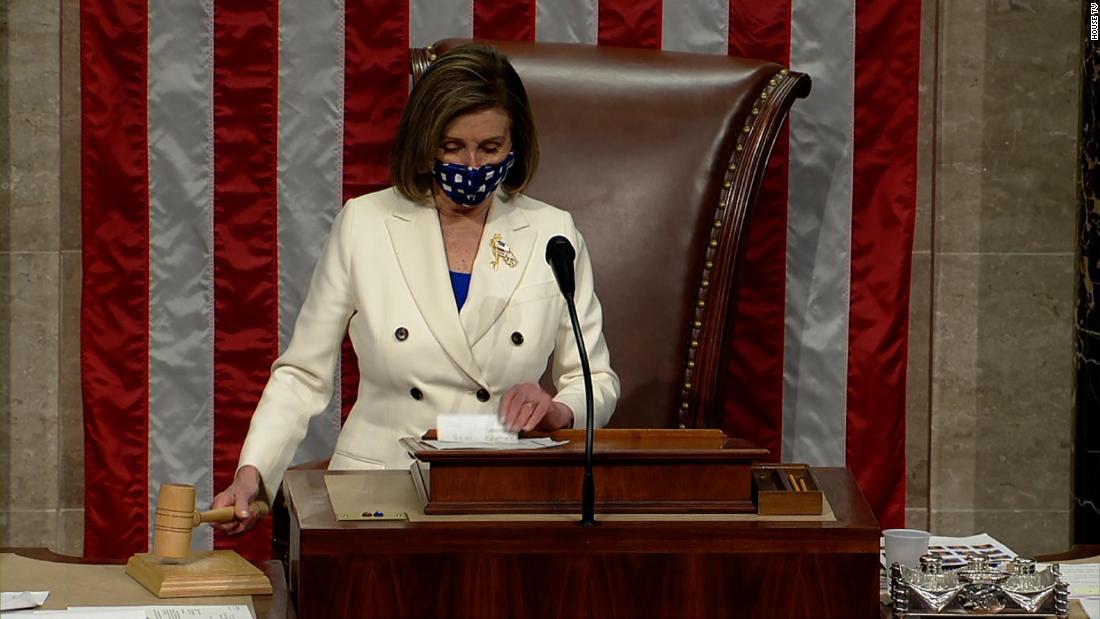Like this newsletter? Tell your friends to sign up here.
Questions? Comments? [email protected]
And follow all our latest updates.
By Ivana Kottasová, CNN
Thursday, March 11
It’s been one full year since the World Health Organization (WHO) declared the coronavirus outbreak a pandemic. A year of previously unimaginable suffering.
Covid-19 has so far killed more than 2.6 million people across the world. At least 118 million -- and most likely many, many more -- have been infected across all continents.
It’s been a year of heartbreak and sacrifice. With more than 529,000 Americans dead, the United States has been by far the worst-affected country in terms of total reported deaths. Five other countries -- Brazil, Mexico, India, the United Kingdom and Italy -- have reported more than 100,000 fatalities.
Families have been torn apart and lives put on hold. Nearly 1.6 billion children worldwide have had their education disrupted because of the pandemic, according to UNICEF. For more than 168 million of them, schools have now been completely shut for almost an entire year.
But it has also been a period of scientific achievement. Within a year of the pandemic being declared, the world now has several vaccines proven to be very effective against the virus, some using a technology that has never been used before.
With inoculation programs rolling out across the world, many are hoping for a return to something resembling normality, maybe as early as this summer. But the brutal reality is that nobody is safe until everybody is safe. The pandemic won’t end unless the virus is stopped everywhere.
"If there’s one thing the Covid-19 pandemic has taught us in the past year, it’s that we are one humanity, and that the only way to confront shared threats is by working together to find shared solutions," WHO Director-General Tedros Adhanom Ghebreyesus said today. "The most effective and strategic way to suppress transmission and save lives globally from Covid-19 is by vaccinating the most vulnerable people in all countries, rather than all people in some countries," he added.
THE LATEST NUMBERS
Global Cases
118,129,308
Global Deaths
2,621,986
US Cases
29,155,046
US Deaths
529,267

Source: Johns Hopkins University
YOU ASKED. WE ANSWERED.
Q
When can kids get vaccinated?
A
Three vaccines are currently authorized for use in adults in the US and clinical trials for those vaccines are underway for children.
Johnson & Johnson said its vaccine could be available to children by September.
Pfizer/BioNTech’s shot is now authorized for people ages 16 and older. Children ages 12 to 15 have been taking part in a trial for months, and Pfizer’s CEO said he hopes data for that age group will be available in the next couple of months. After that, vaccine data for children as young as 5 could be available by the end of this year.
Moderna’s vaccine is currently authorized for people ages 18 and older. Moderna has enrolled trial participants ages 12 to 17 and plans to enroll children ages 6 months to 11 years. It’s unclear when the Moderna vaccine might be available to children.
Send your questions here. Are you a health care worker fighting Covid-19? Message us on WhatsApp about the challenges you're facing: +1 347-322-0415.
WHAT'S IMPORTANT TODAY
Variant first identified in the UK appears to be more deadly, study suggests
The coronavirus variant B.1.1.7, which was first identified in the United Kingdom and is known to be more transmissible, is also associated with an estimated 64% higher risk of dying from Covid-19, according to new research published in the medical journal, The BMJ, yesterday.
It is important to stress the risk is higher, but still very low, increasing from 2.5 to 4.1 deaths per 1,000 cases. The study showed that the new variant was associated with 227 deaths in a sample of 54,906 patients -- compared with 141 deaths among the same number of patients infected with previous strains.
This Covid long-hauler is afraid to take a shower a year after her infection
The long Covid condition is still a mystery, but doctors say they are learning more all the time. A year after getting infected, Lauren Thomas Mandel and her family are still feeling the effects of the illness. Mandel said her son's taste and smell have improved but haven't fully recovered, while her husband, a doctor, still has tingling through his body, shortness of breath and brain fog. For her, the worst part of a year of symptoms is the amount of hair she has lost.
Brazil plunges into crisis with hospitals overwhelmed
A second wave of Covid-19 is ripping through Brazil, pushing hospitals and ICUs toward collapse. The country has broken its own record three times this month for the number of deaths in a 24-hour period. More than 270,000 people are known to have died due to Covid-19, giving Brazil the second-highest national death toll after the US.
While a new variant of the coronavirus spreads throughout the country, many Brazilians continue to defy mask mandates and mobility restrictions following the example of President Jair Bolsonaro, who recently said people need to "stop being sissies" and "whining" about the virus.

A healthcare worker takes a patient to a hospital in Brasilia, Brazil on March 8.
(Photo: Eraldo Peres/AP)
ON OUR RADAR
-
US President Joe Biden has announced plans to purchase 100 million more Johnson & Johnson coronavirus vaccine doses.
-
Denmark has suspended the use of the Oxford-AstraZeneca vaccine for 14 days as it investigates reports of some patients developing blood clots after being inoculated, days after several other EU countries suspended use of a specific batch.
-
Former Presidents Carter, Clinton, Bush and Obama are urging Americans to get vaccinated.
-
One of tech's biggest events is planning to be in-person this year, but big companies are already bailing.
-
Face coverings are no longer required in 16 US states -- despite experts warning that ditching them is premature.
-
MLB's Texas Rangers could be the first team with a full house since the pandemic stopped sports.
-
The Smithsonian's National Museum of American History has received the vial from the first authorized Covid-19 vaccine dose administered in the US.
TODAY'S
TOP TIPS
As we mark 365 days of the pandemic, many of us feel we are left with very little of the good elements of our lives. Is there anything we can do manage emotionally and even thrive? Psychologist John Duffy shares his tips.
FROM TODAY'S
PODCAST
"Science has delivered several safe and effective vaccines. We have a responsibility, all of us, to make sure that those who need it most get it."
-- Maria Van Kerkhove, WHO's Covid-19 technical lead
Dr. Sanjay Gupta checks in with Maria Van Kerkhove, a key leader in WHO’s Covid-19 response. They talk about what they’ve learned and what still lies ahead. Listen now.
CNN
Unsubscribe | All CNN Newsletters
Want to easily manage your newsletter subscriptions? Create your account.
Access CNN's Coronavirus Resource.
® © 2021 Cable News Network, Inc.
A WarnerMedia Company. All Rights Reserved.
One CNN Center Atlanta, GA 30303


